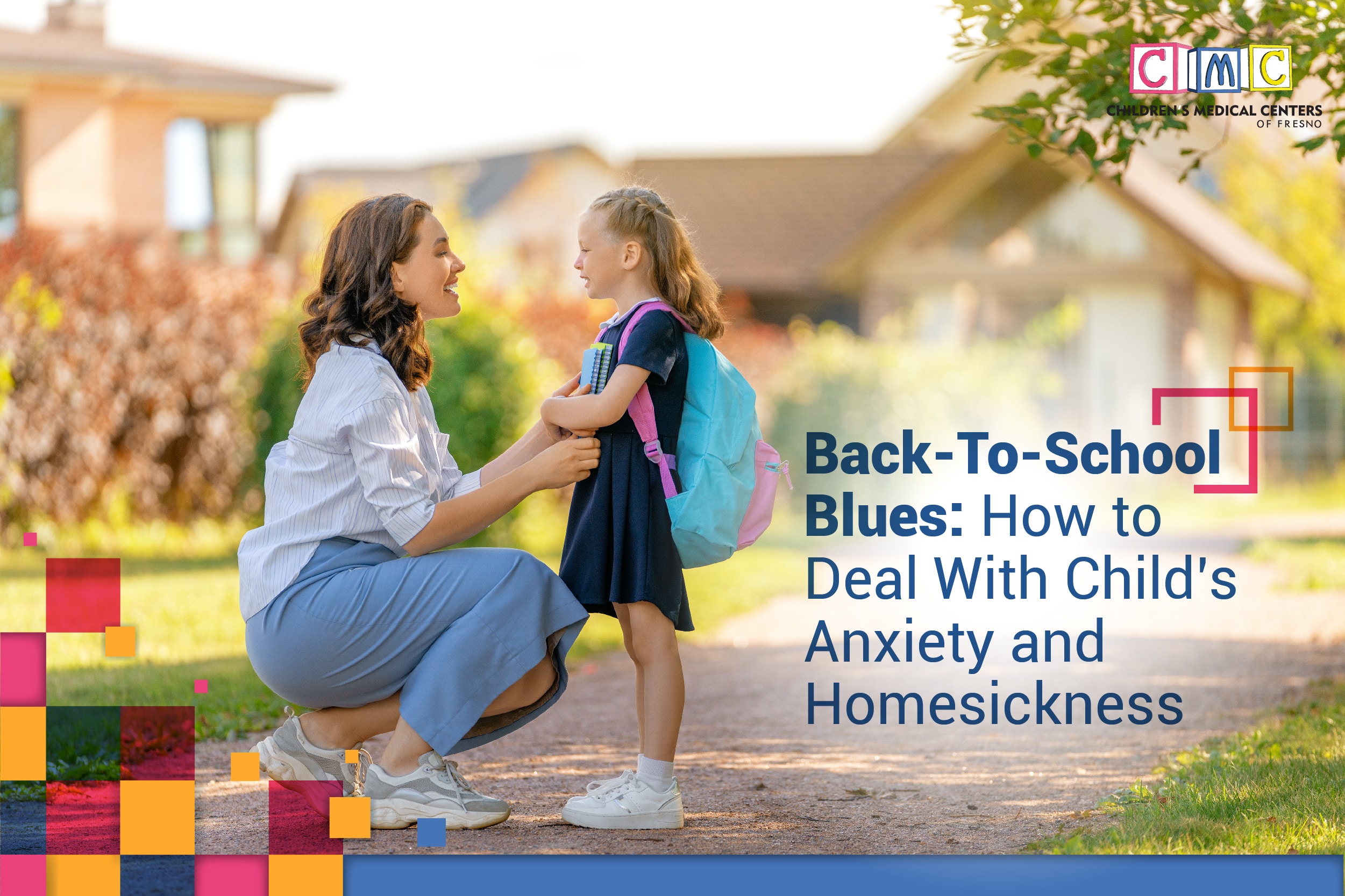Going to school can be an exciting and fun experience for most children. However, for some, it can be overwhelming. For kids who don’t like separation, dropping them off every day can be a challenge. The back-to-school blues are real, but parents don’t fret! In this article, we’ll explore what school refusal is all about and the several ways to help your child deal with back-to-school jitters.
Understanding Separation Anxiety in your School-age Children
For children, a new environment without their parents can be pretty unnerving. No matter their age, children can get homesick and feel separation anxiety. Younger children, however, are more likely to experience them. As the school year begins, many children are apprehensive about starting school. The COVID-19 pandemic has not made matters any easier either. With months of online learning and little social contact, anxiety can be worse.
One main reason children feel anxious about starting school is that they don’t know what to expect. In some cases, certain life events can trigger anxious feelings like moving to another area, the death of someone close, or having trouble at home. When an older child develops separation anxiety out of nowhere, there may be another underlying issue, such as bullying.
Adapting to a new environment is a natural part of growing up. Separation anxiety in children often subsides as they grow and become more confident. It usually lasts from infancy to the early elementary years. Support and intervention are recommended in cases of severe anxiety in children or adolescents that lasts for a long time and causes great distress. This could be an indication of a more severe anxiety issue.
Symptoms of Separation Anxiety in Children
Typically, children who refuse to go to school exhibit various symptoms relating to stress or anxiety. Some of which are:
- headache
- complaining of stomach ache
- crying or having tantrums
- clinging to parents or main caregiver
- vomiting
- shortness of breath
Separation anxiety can often be detected when these physical complaints occur. For instance, parents might hear complaints on a school day, but not on the weekends. Or, they may suddenly appear fine after they have not gone to school.
Here Are Some Ways to Help Kids Deal with Anxiety and Homesickness
There are several things you can do to help ease the anxiety and homesickness of your children. Here are some coping strategies you can start adapting:
Validate and listen to your child’s feelings
Take the time to listen to their concerns without minimizing their feelings. Allow them to process their emotions without passing judgment. Assure your children that you understand how they feel and that you are there for them. It’s important to underscore that having jitters is normal but change is not necessarily bad. The best way to handle your children’s fear is to encourage them to face them rather than avoid them. Praise them when they take a courageous action that they were hesitant to take.
Let them know what to expect
Ensure that they have a good understanding of where and what they will be doing at the school. Anxiety is less likely to occur when your child knows what to expect. This gives your child time to adjust to the idea of leaving home. Moreover, when you tell them all the exciting things they will experience at school, they will look forward to it rather than dread it.
Familiarize them with the school environment
Even if you only stroll around the perimeter and talk about what to expect, paying a visit to the school before the school year begins can be reassuring for your child. If possible, ask for a tour of the school, most especially their classroom, to help reduce anxiety.
Create a goodbye ritual
Before school starts, have a practice for going to school and goodbye rituals. Say it in a positive, quick, firm, and loving manner. Also, make special handshakes, high-fives and say calming phrases. Keep your cool and show your youngster that you believe in him. Be sure to reassure them that you’ll be back, and use kid-friendly ideas to describe when you’ll be returning. Never sneak away. When you say goodbye, give your complete attention, and mean it when you say you’re leaving. Going back will just make things worse.
Be consistent
Follow the same drop-off routine every day. Your child’s independence and trust in you will both grow with a routine. Make sure you keep your word and return when you say you will. A child needs this kind of assurance to cope with the separation.
Spend time apart
Practice separation, gradually acclimating to new people and environments. Arrange playdates with other kids, meet new neighbors, or let grandparents watch your kids. If you intend to leave your child with a relative or a sitter, invite them over, so they can spend time together while you’re there. Leave your child with a caregiver for a short period to get accustomed to being apart from you.
Get back to a regular school schedule
Several weeks before school starts, have your children resume their school routine. To do this, they may have to go to bed at a regular time and wake up early the same way they do for school. Arranging school supplies and preparing the study area in advance can also ease the transition into school and facilitate a smooth start.
Be positive
If your child is away from home, be encouraging and supportive. You want them to feel capable of coping without you. Provide your child with confidence and a sense of security by using positive words and affirmations. Additionally, you can introduce relaxation techniques, such as deep breathing, stretching, or picturing a relaxing scene.
Help Your Child Be at Ease!
With back-to-school season just around the corner, your child’s feelings about it can be all over the place. Sometimes they may be eager to return to school, and other times they may dread it or feel anxious and homesick. If your child is struggling with long-term separation anxiety and negatively affects their lives, don’t hesitate to get help. Schedule an appointment online or call us at CMCFresno today!



